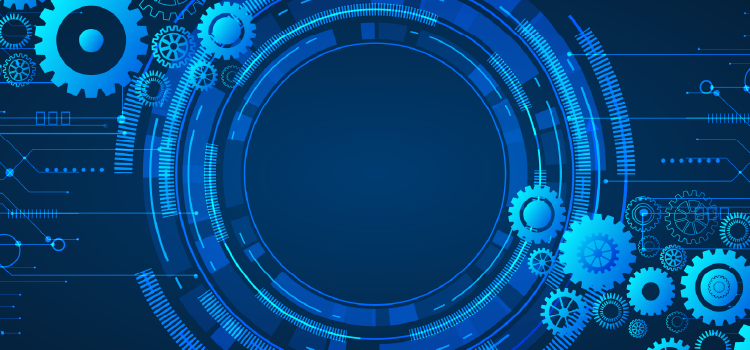Introduction:
As global competition intensifies, businesses must respond faster to market changes, customer expectations, and regulatory demands. Traditional task-based automation initiatives, isolated bots and siloed workflows, are no longer sufficient. What modern enterprises need is an end-to-end automation ecosystem: a unified, integrated framework that connects processes, systems, data, and decision layers across the organization
An automation ecosystem goes far beyond isolated automation projects. It enables true operational agility, giving businesses the ability to adapt, scale, and optimize processes in real-time. In this blog, we explore how enterprises can overcome common automation challenges and how Mphasis’s enterprise automation solutions help organizations achieve full-scale digital transformation.
Enterprise Automation Challenges
Despite growing investments in automation technologies such as RPA, AI, and process orchestration, enterprises often encounter significant roadblocks that limit scalability and value realization:
1. Lack of Visibility Across Automation Initiatives
Many organizations initiate automation efforts independently across departments or business units. Without centralized governance and enterprise-wide visibility, automation projects remain fragmented. This leads to duplicated efforts, inconsistent standards, and missed opportunities for cross-functional optimization.
2. Manual Interventions Between Automated Systems
Even after automating individual processes, many handoffs between systems or teams still require human intervention. These breaks in automation chains slow down operations, introduce errors, and dilute the efficiency benefits originally promised by automation.
3. Complex Multi-Platform IT Environments
Enterprises often operate a mix of legacy systems, cloud platforms, SaaS solutions, and hybrid infrastructures. Integrating automation across these diverse environments can be technically complex, costly to maintain, and difficult to govern consistently.
Mphasis’s Approach to Enterprise Automation Ecosystems
Mphasis addresses these challenges through a comprehensive approach designed to create fully integrated, enterprise-wide automation ecosystems. Rather than simply automating tasks, Mphasis delivers strategic, scalable, and sustainable automation across the organization.
Enterprise-Wide Automation Blueprint and Governance
Mphasis begins by developing an automation blueprint that maps out business processes, identifies automation opportunities, and aligns them with the organization’s strategic goals. A strong governance framework ensures consistency, compliance, and visibility across automation projects.
Automation Centres of Excellence (CoEs)
To scale automation efficiently, Mphasis establishes Automation Centres of Excellence (CoEs) that provide best practices, reusable frameworks, governance, and centralized expertise. These CoEs enable rapid deployment of automation across business units while maintaining quality and consistency.
Integration of Process Mining, RPA, BPM, and AI
Mphasis leverages a hyperautomation framework that combines multiple technologies:
● Process Mining for process discovery and optimization through Lean Process Re-engineering
● Robotic Process Automation (RPA) for automating repetitive tasks
● Business Process Management (BPM) for end-to-end workflow orchestration
● Artificial Intelligence and Machine Learning (AI/ML) for intelligent decision-making and predictive insights
This full-stack approach ensures true end-to-end automation, enabling continuous improvement and operational intelligence.
Case Study: Automation Ecosystem Transformation for a Specialist Railway Firm
Business Challenges
A leading specialist railway firm partnered with Mphasis to execute a multi-year Automation Transformation Program. The client faced multiple challenges:
● High operating costs and technical debt
● Legacy IT footprint limiting scalability
● The need for next-generation platforms to support business growth
● A goal to build a data-driven organization with real-time visibility into the entire delivery lifecycle
The Solution
Mphasis applied its proven Front2Back™ transformation framework to deliver a comprehensive automation ecosystem, driving digital transformation across the enterprise:
●Built an enterprise-wide, event-driven digital operations platform using composable microservices, cloud-ready platforms, and reusable business capabilities.
● Implemented a Hyper Intelligent Automation Framework leveraging Process Mining, AI/ML, Quantum Computing, OCR, and RPA to optimize customer experience, cost, and control.
● Digitized field operations, replacing paper-based manual processes with digital data capture, improving safety compliance and enabling real-time updates.
● Established a centralized RPA Centre of Excellence (CoE) and multiple delivery pods to scale automation initiatives rapidly across the organization.
Business Outcomes
The fully integrated automation ecosystem delivered measurable outcomes:
● The RPA CoE produced business benefits within the first quarter of implementation.
●110+ processes automated, saving over 46,000 manual hours annually (approximately 7.58 million CAD in savings).
● 24/7 bot availability with 100% accuracy.
● 50–70% reduction in Average Handling Time (AHT) across automated processes..
● Significant reduction in technical debt and IT operating costs through reusable platforms.
● Enhanced customer experience, improved compliance, and greater efficiency across all business units.
Key Outcomes of Mphasis Automation Ecosystems
The Mphasis approach to enterprise automation delivers:
● Unified Control and Observability: Centralized monitoring and governance ensure real-time insights and proactive process optimization.
● Rapid Scalability and Faster ROI: Reusable automation frameworks accelerate deployment and time-to-value.
● Lower Total Cost of Ownership (TCO): Simplified IT environments and reusable components minimize costs and improve operational flexibility.
Summary: Enterprise Automation Ecosystem FAQ
What is an enterprise automation ecosystem?
An enterprise automation ecosystem is an integrated framework that connects people, processes, technologies, and governance models across the entire organization. It allows businesses to scale automation beyond isolated tasks, ensuring seamless, end-to-end process automation that drives agility, efficiency, and growth.
Why partner with Mphasis for enterprise automation?
Mphasis delivers a strategic automation transformation built on deep technology expertise, process discovery capabilities, and proven delivery frameworks. With its Front2Back™ approach, Automation CoEs, and full-stack integration of RPA, AI, BPM, and process mining, Mphasis enables businesses to build future-ready automation ecosystems that deliver sustained business impact.

